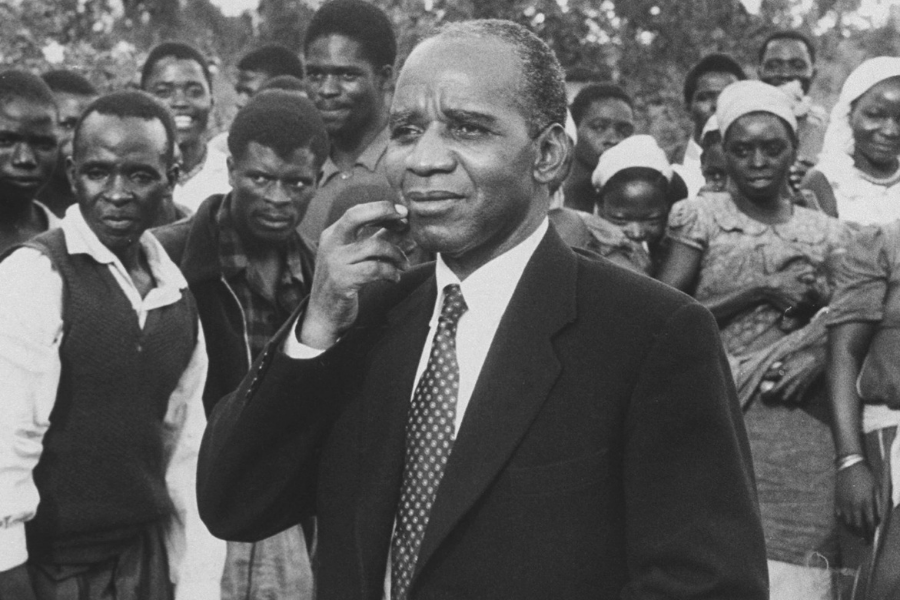
ON July 6, 1964 the Protectorate of Nyasaland became independent, renaming itself Malawi.
Malawi is a small country compared to its neighbours and ranks amongst the poorest in the world. Nevertheless, because of its past links to Scotland, the country has a special place in Scotland’s political economy.
The country is recognised across the political spectrum as one that has a special relationship with Scotland, with the relationship being widely agreed upon and uncontested as one of Scotland’s most vital partnerships. The last Labour-LibDem government started this with the Scotland-Malawi partnership, an umbrella organisation charged with coordinating and furthering Scottish links with Malawi.
But on Malawian independence day, the country’s links to Scotland deserve closer scrutiny – particularly surrounding Scotland’s colonial legacy in Malawi.
Prior to independence, Malawi had been occupied by the British since the 1860s, with several missionaries and traders establishing settlements in the country. A majority of these settlers were Scottish. Indeed, it was the famous David Livingstone who first explored Malawi in the mid-19th century as part of his missionary travels through Central Africa.
It was at the behest of these Scottish traders and missionaries that the British government eventually annexed the country in 1891, beginning a 73-year period of imperial occupation.
Malawi’s independence should be the day in which we not only celebrate the post-independence links between our two countries, but recognise honestly the past events that have transpired.
As the Protectorate of Nyasaland, Malawi could honestly claim to be a de facto Scottish colony.
Nyasaland’s economy under imperial rule was geared toward exploitation and resource extraction to the benefit of the colonising power. In Nyasaland, this took the form of the planter economy where white planters owned land on which they grew cash crops such as tobacco and tea.
Scots were disproportionately represented amongst the ranks of the white population, and Scottish companies took a leading role in exploiting the colonial economy to their benefit.
Alongside the African Lakes Company that led the initial colonisation of Malawi, there was also Blantyre and East Africa Ltd and AL Bruce Estates – a company first set up by Livingstone’s son-in-law. Indeed, the brutal labour practices of AL Bruce Estates were partially responsible for provoking the failed Chilembwe Uprising against colonial rule in January, 1915.
All of these companies were based in Scotland and ran by Scots, but their wealth was created by the Malawian labour force toiling the fields.
Whilst Scottish capital raided the country for its resources, Scottish churches preached to the population. Presbyterianism remains widespread in modern Malawi – a direct legacy of Scottish colonialism. Scottish church missionary organisations also educated much of the native population. Indeed, they educated many individuals that would challenge colonial rule, including the anti-colonialist Dr Hastings Banda, the first prime minister and later first president of an independent Malawi.
Banda was also an elder in the Church of Scotland. He was said to have ruled the country like a stern Presbyterian elder, autocratically enforcing his version of traditional values until his dictatorship ended in 1994.
Ironically however, whilst being one of the biggest beneficiaries of Malawian oppression, many Scots were roused to support the cause of Malawian freedom in the 1950s.
With anti-colonial movements gaining strength after the Second World War, the British government scrambled to retain what it could of the Empire after 1945. Specifically, it sought to consolidate British influence in Africa. In the case of Nyasaland, the British government sought to federate the country with the neighbouring Protectorate of Northern Rhodesia and the white settler colony of Southern Rhodesia. Given the proposed structure and restricted franchise, this would have in effect placed millions of Africans in Nyasaland and Northern Rhodesia under the rule of a white minority in Southern Rhodesia and safely within the British sphere of influence.
The people of Nyasaland made their displeasure known and solicited support for their cause to remain free of any federation. The Kirk took up the mantel and alongside political campaigners, helped galvanise Scottish society to speak out in favour of freedom for Nyasaland. Hundreds attended anti-federation meetings across the country. Harold MacMillan was said to be wary of the Kirk around the issue, aware that Nyasaland could become an electoral problem for his government in Scotland.
Scotland in the 1950s was plainly not a rabid hotbed of anti-colonialism. But the genuine popular support that the cause of Malawi commanded is impressive, particularly considering Scotland’s leading role in colonising and exploiting the country. The country was deeply entwined with Empire, and had not yet begun to disentangle the concept of Scottishness from the imperial project. Indeed, many prominent Scottish supporters of Malawian freedom still spoke warmly of the Empire and wrongly saw Malawian independence as the culmination of Scottish and British “stewardship” of the country rather than the ultimate rebuke of imperialism.
Many of the issues that face Malawi today can be traced back to the exploitative colonial regime that many Scots participated in. The country’s high poverty index, unequal economic system and anti-LGBT+ laws are just some of the most glaring legacies of imperialism in the country and a direct result of those Scottish clergymen and capitalists settling there in the 19th century.
There are undoubtedly positive historical aspects of the Scottish-Malawi relationship, but the legacy of Scotland’s imperialism cannot be simply brushed aside as one negative mark on the pros and cons list. It is the definitive aspect that casts a long shadow.
Ultimately, it is hopefully through honest reflection and frank acknowledgement that Scotland will be able to progress more fully understanding its role within the British Empire, paving the way for a deeper and more meaningful solidarity between Scots and Malawians.







